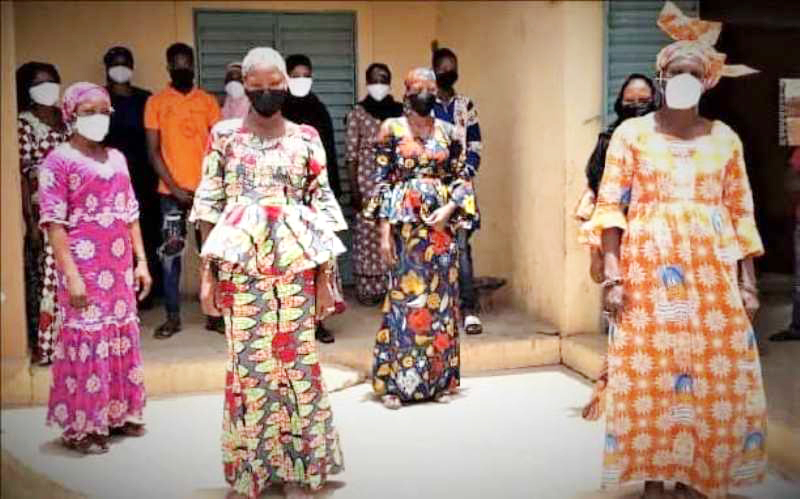BUEA, Cameroon- A recent West Africa Regional Rapid Gender Analysis on COVID-19 published by CARE, has revealed that COVID-19 is changing gender norms across the sub-region.
In its report, CARE stated that women are excluded from information sharing on COVID-19, and from key high level decision making processes at national and regional level.
The new West Africa CARE gender report also revealed that despite this trend, opportunities to disrupt deeply entrenched gender inequalities have also emerged.
In a press statement, CARE revealed that it interviewed over 260 people representing communities, health ministries, and local aid organisations, from 12 West African countries and found some major gaps including access to basic needs like food and hand-washing supplies, health services and official information on prevention measures.
“Despite this, the analysis also revealed emerging examples of women’s innovation and resilience in the face of the COVID-19 outbreak,” the report stated.
In its report, CARE noted that most countries in West Africa, like Niger, Mali and Burkina Faso are very fragile, as such, COVID-19 is expected to severely exacerbate an already volatile situation, particularly in the Sahel Region, where it adds to an existing combination of poverty, climate change impacts, low human development, and conflict.
Claudine Mensah Awute, CARE Regional Director for West Africa, stated that “Over 44 million people in our region were already in urgent need of humanitarian assistance before the pandemic, and national response plans remain significantly underfunded,…The many critical gaps across the region force both us, as humanitarians, and families in dire need to undertake challenging prioritisation exercises on a daily basis,” She explained.
She further noted that COVID-19 is also disproportionately impacting women and girls across the West Africa region. “Information sharing and dissemination of hygiene and prevention messaging is one good example of gender bias, as many of the traditional media outlets used to communicate on this pandemic are not sensitive to the specific needs of women.”
Awute further noted that “despite this, there are also some emerging rays of hope and opportunities for women. The majority of respondents in our survey said that there had been an increase in shared decision making on the management of household resources, and we have seen some ingenious innovation projects from amongst the communities we work with such as the construction of washing stands using only simple, local materials and the sewing of face masks by women’s groups.”
Other findings of the report show that; Food and income are two of their biggest priorities in the current situation, the most significant effects of COVID-19 are the reduction of economic activities and income, networking of community-based organisations, VSLAs in particular, needs to be encouraged to strengthen income-generating activities such as the production of soap, to provide market stimulating responses to meet basic needs, fear of contracting the disease combined with a mistrust of health workers means fewer women are accessing services like reproductive health which could lead to increased maternal and neonatal mortality, women and youth need to be connected with media agencies and mobile companies for the production of information on COVID-19, the participation of women is not systematic and is reliant on them balancing household responsibilities.
About CARE International
CARE is a leading humanitarian organisation fighting global poverty by lifting up women and girls. It reached 68 million vulnerable people in 100 countries around the world in 2019. Since the onset of COVID, CARE has pivoted its life-saving food security, health services, educational, and women’s empowerment programming to directly fighting the spread and impact of the disease. As of April 17, 2020, CARE has reached 107.4 million people with COVID-specific or adapted programmes. 1.9 million people have been directly reached with hygiene messaging, 601,000 with hygiene kits, 773,000 with increased water, 114,000 with food or cash/vouchers, and 22,800 with handwashing stations.
